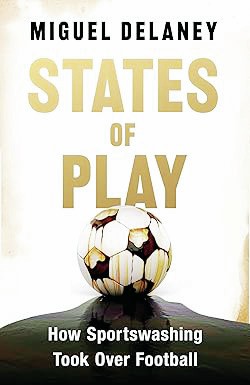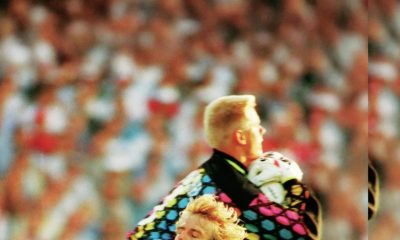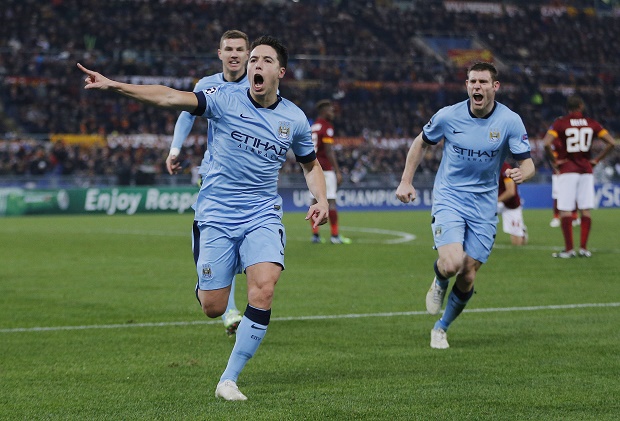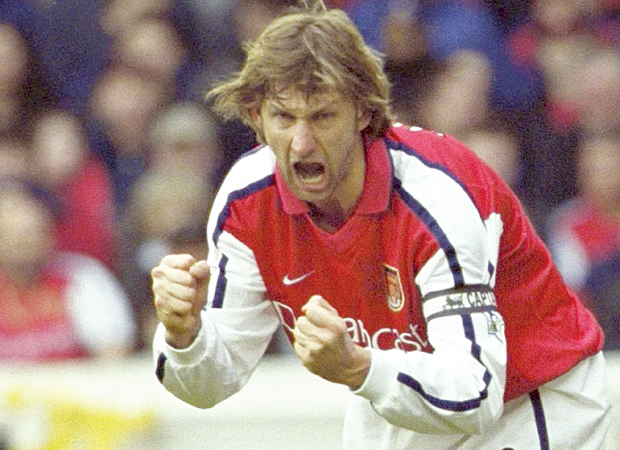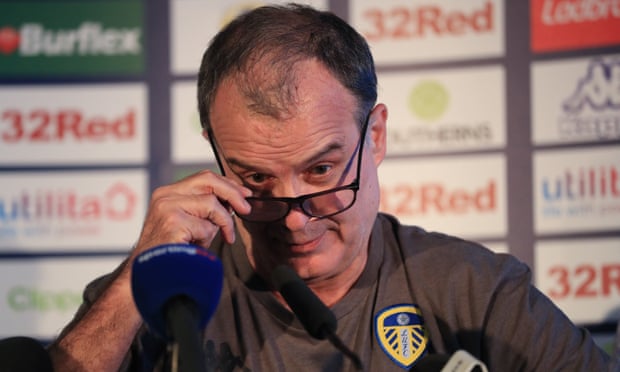

There were some eye-catching managerial appointments in the Championship over the summer.
Former Chelsea and England star Frank Lampard takes his first steps in the precarious profession at ambitious Derby County.
The 40-year-old took the reins from Gary Rowett, who has decided that Stoke, relegated from the Premier League, are a better bet for his future.
It’s going to be fascinating to see how former Ostersund boss Graham Potter gets on at another club relegated from the top tier, Swansea.
Former England boss Steve McClaren is back in the dugout with QPR and Paul Hurst has the chance to show what he can do at Ipswich following his heroics with League One outfit Shrewsbury last term.
Darren Moore has the opportunity to prove that his success as caretaker-manager at West Brom last term was not a flash in the pan after being handed the manager’s job on a permanent basis.
That said, there is one appointment that stands out head and shoulders above all the others – the marriage between Marcelo Bielsa and Leeds United.
When the first whispers came out that the legendary Argentinian boss was a front-runner for the Elland Road hotseat, it was difficult to believe them.
But, lo and behold, in mid-June, just as the World Cup was kicking into gear, it was announced that ‘El Loco’ (the crazy one) was, in fact, venturing to England to manage for the first time in his career.
Leeds handed him a two-year contract, with the Whites holding an option for a further year.
In a statement on the club’s website, he said: “I am delighted to accept the role of head coach at Leeds United.
“It has always been my ambition to work in England and I have had several opportunities to do so during my career.
“However, I have always felt it was important to wait for the right project to come along and so when a club with Leeds United’s history made me an offer, it was impossible to turn down. I am excited for the challenge ahead.”
It’s an audacious appointment and the fact that Leeds’ odds for promotion were slashed in the immediate aftermath of his arrival says a lot about the impact Bielsa could have – and he has certainly got off to a flying start at Elland Road.
But there is a question mark as to whether Bielsa is still the master he once was. Is he, in fact, over-the-hill and looking for one final big pay-day?
You’d like to think not, because if the 63-year-old can keep Leeds’ players on-side and playing the high-intensity, attacking game that he’s renowned for, then they could be a joy to watch.
It’s approaching 30 years ago that Bielsa started out in management with home-town club, Newell’s Old Boys, in Rosario, Argentina.
A former players with NOBs, the demanding and intense Bielsa proved an immediate success. He led them to two league titles and also to the final of the Copa Libertadores in 1992, losing on penalties to Sao Paulo.
After spells in Mexico with Atlas and America, he captured another league title in his homeland with Velez Sarsfield in 1998.
He cut short his time with Espanyol in Spain later that year to take over as manager of the Argentinian national team. Bielsa led his country for six years, but it wasn’t a smooth ride.
Expectations were raised after Argentina stormed home in first place in South American qualifying for the 2002 World Cup in Japan and South Korea.
A record of 13 wins, four draws and 1 defeat, with a +27 goal difference, saw Argentina bag 43 points, finishing 12 points clear of second-placed Ecuador.
It meant Argentina went into the World Cup as one of the favourites, but they failed to deliver on the biggest stage of all. In a ‘Group of Death’ with England, Sweden and Nigeria, Bielsa’s men got off to a satisfactory start with a 1-0 win against the latter courtesy of Gabriel Batistuta.
But then the wheels fell off. David Beckham struck the only goal from the penalty spot as England triumphed 1-0 in Sapporo to gain a measure of revenge for their painful defeat on penalties four years earlier when Beckham had been dismissed for his petulant kick at Diego Simeone.
Victory in their final group game against the Swedes would have taken Argentina through to the last 16, but they could only manage a 1-1 draw. It was all over as Sweden and England marched on.
Perhaps surprisingly in the cut-throat world of football management, Bielsa kept him job.
In 2004, Bielsa and Argentina came agonisingly close to winning the Copa American in Peru. When Cesar Delgago gave them a 2-1 lead in the final against Brazil with just three minutes left, it appeared as though Argentina had one hand on the trophy.
But Adriano levelled for Brazil in injury time and, buoyed by that reprieve, the Brazilians went on to win 4-2 on penalties.
There was better fortune for Argentina in the Olympics in Greece later that summer as Carlos Tevez scored the only goal as they beat Paraguay in the final to clinch gold.
Bielsa resigned at the end of 2004 and then resurfaced with their neighbours Chile in 2007. By helping ‘La Roja’ qualify for the 2010 World Cup, after failing to make the previous two tournaments, and revamping their style of play, Bielsa became a hero in his adopted country.
One-nil wins against Honduras and Switzerland in their opening two matches in South Africa meant a 2-1 loss to Spain in their final group match mattered little. Spain and Chile both advanced to the last 16.
Chile lost 3-0 to Brazil, who have a habit of ending their World Cup dreams, in the last 16, but it had been a magical ride.
After four years at the helm, Bielsa resigned in February 2011. Since then, he has had spells back in club football with Athletic Bilbao, Marseille, Lazio and Lille, with varying degrees of success.
His first season in charge of Athletic Bilbao was remarkable. He guided the Spanish outfit to the Europa League final, beating Manchester United, among others, en route.
Sadly for Bielsa, there wasn’t a happy ending as Bilbao lost 3-0 to Atletico Madrid in an all-Spanish final in Bucharest. To add to a feeling of what might have been, they then lost 3-0 to Barcelona in the Copa del Rey final.
Bilbao finished mid-table in Bielsa’s second season at the helm and he wasn’t offered a new contract at the end of it.
He then took over at Marseille and, like at Bilbao, got off to a flyer. However, they couldn’t keep the pace going and eventually finished fourth, earning Europa League qualification.
After losing their opening Ligue 1 match to Caen the following season, Bielsa resigned after falling out with the club’s management.
A year later, he took the reins at Lazio, but, bizarrely, quit just two days later. Then came a disappointing six-month stint at Lille last term which ended with Bielsa being dismissed.
If those are some of the facts about Bielsa’s career, they only tell a fragment of the story.
For while he doesn’t have bundles of trophies to his name, he is extremely highly regarded by a whole host of top managers.
Bielsa was one of the first proponents of the pressing game that has since become all the rage. His innovative 3-3-3-1 formation was designed as an attacking and flexible system, with players required to switch positions and get up and down the pitch.
It requires a lot of energy and is one of the reasons why Bielsa likes to give young players their chance – the sort of chance you can take with these btts tips.
It is also been suggested that one of the reasons his teams often start the season well and then fade in the closing furlongs is precisely because they have put so much energy and effort in. There is little left in the tank.
Will that prove to be the case in the unceasing slog of a 46-game Championship season? Leeds fans will be hoping that isn’t the case.
One of Bielsa’s other great obsessions is football videos – he has a vast collection – and his attention to detail and preparation put him ahead of the rest in years gone by.
It was no great surprise that when he held his first Leeds press conference in late June he said he’d watched all 51 of their games last season.
“I know everything a foreigner could have possibly absorbed about Leeds and what it means to the fans,” he said.
It says a lot for him that many current coaches, and a number that played under him, have been heavily influenced by his style and teachings.
Those include Manchester City manager Pep Guardiola, Tottenham boss Mauricio Pochettino, Atletico Madrid manager Diego Simeone and former Argentina manager Jorge Sampaoli.
Pochettino played under Bielsa for Newell’s Old Boys and Argentina.
“He is like my football father. We are a generation of coaches who were his disciples,” the 46-year-old told SFR Sport. “How he feels football, the passion he has for football, I think we all took that from him.”
Bielsa spoke via an interpreter in that first press conference – for almost an hour and a half – but is keen to be able to speak to his players in English in the future.
“I’ve got lots to thank my mother for but one thing in particular is that she sent me to English classes for 15 years,” he said.
“I’m going to try (to speak English to you soon). But I said the same at the start in France, but didn’t manage it.”
Nonetheless, he’s sure that his squad will be able to fully understand what he wants as time goes by. “I believe the players will interpret what I say on the field and have ability to take on board what I say to put my thoughts and beliefs into action,” he said.
Leeds’ players should have had a good idea by the time pre-season training was over. At Lille, about 20 bungalows were built at their training ground last year.
Lille winger Anwar El Ghazi told World Football last year: “The first two days were tests and after that it was hardcore. We trained at 10am and second training was 6.30pm. We eat here, we sleep here and we do everything here.
“They’re small bungalows, just a bedroom, air conditioning and electricity, that’s all. If you want to take a shower you go to the changing room and we have a room with Playstation and table tennis.
“The coach said we had to be a family together and when you’re eating together, sleeping next door to each other, you become a family. We are like brothers now.”
Such is Bielsa’s standing in the game that there will be plenty of interest around the world in how he gets on.
Personally, I’m intrigued to see how he will fare in Yorkshire this season. I lived in Chile for a few years just after his time in charge of the national team, but could sense that he was still highly regarded there. In fact, it seemed like an obsession at times.
On the sports section of the lengthy national television news, there would be regular updates and clips of how he was getting on at Athletic Bilbao and Marseille.
He was all over the newspapers, too. Let’s not forget, Bielsa isn’t even Chilean.
Brian Clough famously had 44 days in charge at Leeds in the mid-70s. Whites fans will hope the Bielsa story lasts a lot longer – and is more successful. He’s certainly got off to a good start.

